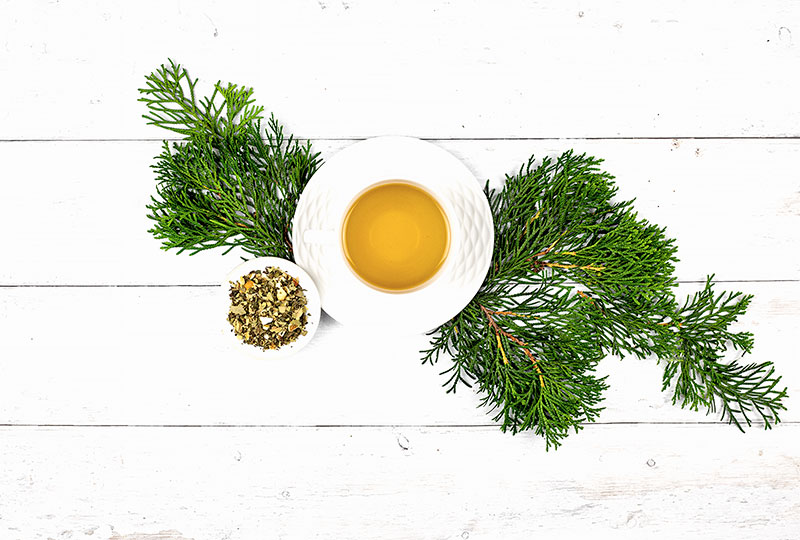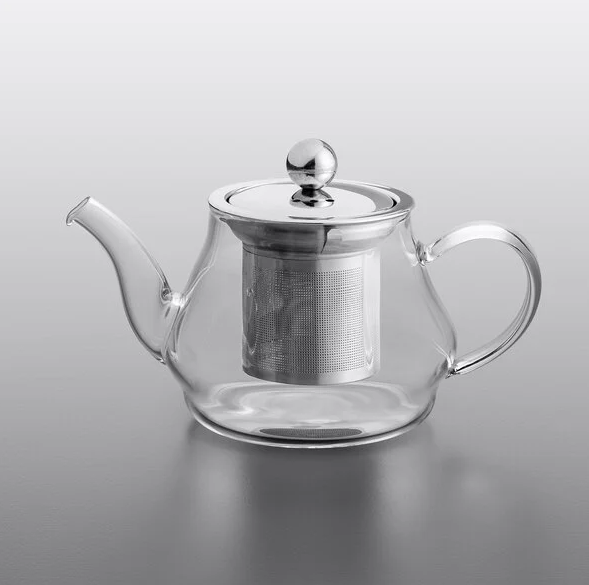Top 10 Best Teas for Inflammation
This post may contain affiliate links. Simple Loose Leaf is a participant in the Amazon Associates Program, an affiliate advertising program designed to provide a means for sites to earn advertising fees by linking to Amazon.com. Fever, pain, swelling and redness, are all symptoms of inflammation. While serious problems always ask for a professional help, some milder problems like muscle soreness after a strenuous exercise or a mild common cold may be easier managed at home. Drinking tea may help. Find out what are the best teas for inflammation.
What is inflammation?
Inflammation is a body’s response to viruses, bacteria, external injuries or radiation[1]. It starts when our immune system tries to fight them. Inflammation can be temporary or acute or permanent or chronic. We consider the first one to be a normal response of our immune system. However, the second one if the opposite–it occurs when the body’s fighting its own cells by a “mistake”[2] or by after not treating the cause of acute inflammation[3]. In both cases, there are many things you could do to help your body with acute inflammation or even prevent the chronic inflammation. The most common acute inflammations are bronchitis, flu, common cold and different wounds. The most common chronic inflammations are Chron’s disease, type 2 diabetes, rheumatoid arthritis and asthma.What teas help with inflammation?
If you want to find the best tea to help with inflammation, look for teas that have anti inflammatory and antioxidant properties. Both the real teas made from Camellia sinensis plant, and herbal teas may help. Green tea is considered one of the most potent healthy drinks in the world. Many of its numerous potential benefits have been backed up by science. Tea contains antioxidants, vitamins, minerals, caffeine, chlorophyl, amino acid L-theanine and other compounds. EGCG, a potent catechin in green tea is found in large quantities only in tea–specifically unoxidized tea. Other types of real tea, such as oolong, black, dark or yellow, may provide numerous benefits too, similar to those of green tea. However, if you are looking for an anti inflammatory activity, green tea may be the best choice[4]. Another great choice is white tea, that usually contains more EGCG than oolong, black or dark tea, and may sometimes have even more EGCG than green tea[5].Best Green Teas
Studies showed that drinking tea rich in EGCG such as green tea may improve your quality of life if you are suffering from inflammatory diseases[6]. Both the antioxidant and anti inflammatory activity in green tea come mainly from EGCG or Epigallocatechin gallate. All green teas will contain EGCG. While it’s impossible to know the exact amount of EGCG in every tea, it’s still possible to guess which type may have a higher amount. For example, teas harvested earlier in a year are likely to have higher levels of antioxidants. Younger leaves and buds are likely to contain more EGCG than older mature leaves. Read more on how to choose tea with the most EGCG.Green teas to try
If you want to maximize the benefits in a cup of tea, try to choose pure teas instead of flavored ones. Why? Because one teaspoon of pure tea will contain more tea leaves than one teaspoon of flavored blend–which may contain only ½ the amount of tea leaves. Next, all pure teas are suitable for re-steeping. This means you will be extracting more flavor and antioxidants if you re-steep them 1-5 times. Always pay attention to the water temperature and steeping time. Studies showed that green tea from Sri Lanka may have a very high amount of EGCG, followed by Japanese, Nepali, Indian and Chinese tea[7]. However, Chinese green tea may still have higher levels of EGCG than green tea from Sri Lanka. Try some of the following teas:- Japanese sencha green tea
- Misty morning Chinese green tea
- Guranse Estate Indian green tea
- Bitaco Green Colombian green tea
- Mao Feng Chinese green tea
Best Herbal Teas
If you prefer to drink caffeine free teas, many herbal infusions may help with inflammations too. One of the best teas to try are rooibos, ginger, honey bush and herbal infusions made from different parts of rose plants.Rooibos herbal tea
Rooibos or red bush tea is a herbal tea made from a plant called Aspalathus linearis, grown exclusively in South Africa. This tea became more widely available around 20 years ago, exactly because of its numerous potential benefits and unique earthy and slightly sweet flavor. Unlike teas made from Camellia sinensis plant, rooibos is naturally caffeine free. This makes rooibos suitable for all age groups. Besides, it’s one of rare teas that is suitable for children and even infants. Rooibos tea can be fermented and unfermented, quite similar to green and black tea. Green rooibos has a more vegetal, slightly sweet flavor with no bitterness, and may provide more benefits than red rooibos. Science says it may be especially beneficial for reducing vascular inflammation in diabetics[8].
Green rooibos tea
Rose hips herbal tea
Rose hips tea is a tea made from a rose plant’s pseudo fruit. It has both anti oxidative and inti inflammatory properties and may have a higher anti oxidative activity than many popular berries[9]. Rose petals tea, too, may provide a significant anti oxidative and anti inflammatory activity.[10] Read more about rose tea and rose hips tea.Honeybush tea
Honey bush, just like rooibos, grows exclusively in South Africa. It has a very similar appearance and similar flavor to red rooibos tea and it is caffeine free. It has anti inflammatory, antioxidant, antimicrobial, phytoestrogenic and antimutagenic properties[11].Ginger tea
Ginger is a truly amazing root. Not only does it taste great, but may provide a lot of health benefits too. Studies showed that ginger may help boost the immune system and help with different types of inflammation, such as osteoarthritis, multiple sclerosis, Chron’s disease, arthritis, diabetes.[12]Best Turmeric Teas
Turmeric, another amazing root similar to ginger, may provide anti inflammatory activity too. Research suggests that turmeric may help with both acute inflammation such as muscle pain and inflammation after exercising, and with chronic inflammations such as arthritis[13]. Turmeric is available dry, fresh and powdered. Read more about turmeric tea and how to make a homemade turmeric latte here. Best turmeric teas to try:- Coconut Spice
- Turmeric Comfort
How Anti-Inflammatory Tea Relieves Your Symptoms
Anti inflammatory properties in tea come from polyphenols, same compounds that provide anti oxidative properties too. Each and every tea may provide different benefits for different types of inflammations. Tea may help both relieve the symptoms of acute inflammation or help prevent some chronic inflammations. For example, antioxidants in green tea may help fight free radicals that cause cellular damage and boost immune system to help it fight inflammation. Any tea that contains antioxidants has an anti inflammatory potential. Different teas will provide benefits for different types of inflammation. For example, turmeric may be great for arthritis and Inflammatory bowl disease, while green and rooibos tea may be great for diabetics. Never try to treat any type of disease without consulting your doctor first.Disclaimer: This article is for informational purposes only. It’s not intended to replace medical advice, diagnosis or treatment. Every person is different and may react to different herbs and teas differently. Never use teas or herbs to treat serious medical conditions on your own. Always seek professional medical advice before choosing home remedies.
References:
[1] https://www.ncbi.nlm.nih.gov/books/NBK279298/ [2] https://www.ncbi.nlm.nih.gov/books/NBK279298/ [3] https://www.ncbi.nlm.nih.gov/books/NBK493173/ [4] https://www.ncbi.nlm.nih.gov/pmc/articles/PMC3401676/ [5] https://pubmed.ncbi.nlm.nih.gov/20722909/ [6] https://pubmed.ncbi.nlm.nih.gov/27634207/ [7] https://www.ncbi.nlm.nih.gov/pmc/articles/PMC6100455/ [8] https://www.ncbi.nlm.nih.gov/pubmed/25338943 [9] https://www.ncbi.nlm.nih.gov/pmc/articles/PMC5485961/ [10] https://www.ncbi.nlm.nih.gov/pmc/articles/PMC4737971/ [11] https://www.ncbi.nlm.nih.gov/pmc/articles/PMC4653346/ [12] https://www.ncbi.nlm.nih.gov/pmc/articles/PMC3665023/ [13] https://www.ncbi.nlm.nih.gov/pmc/articles/PMC5664031/
More from:
SLL



Leave a comment